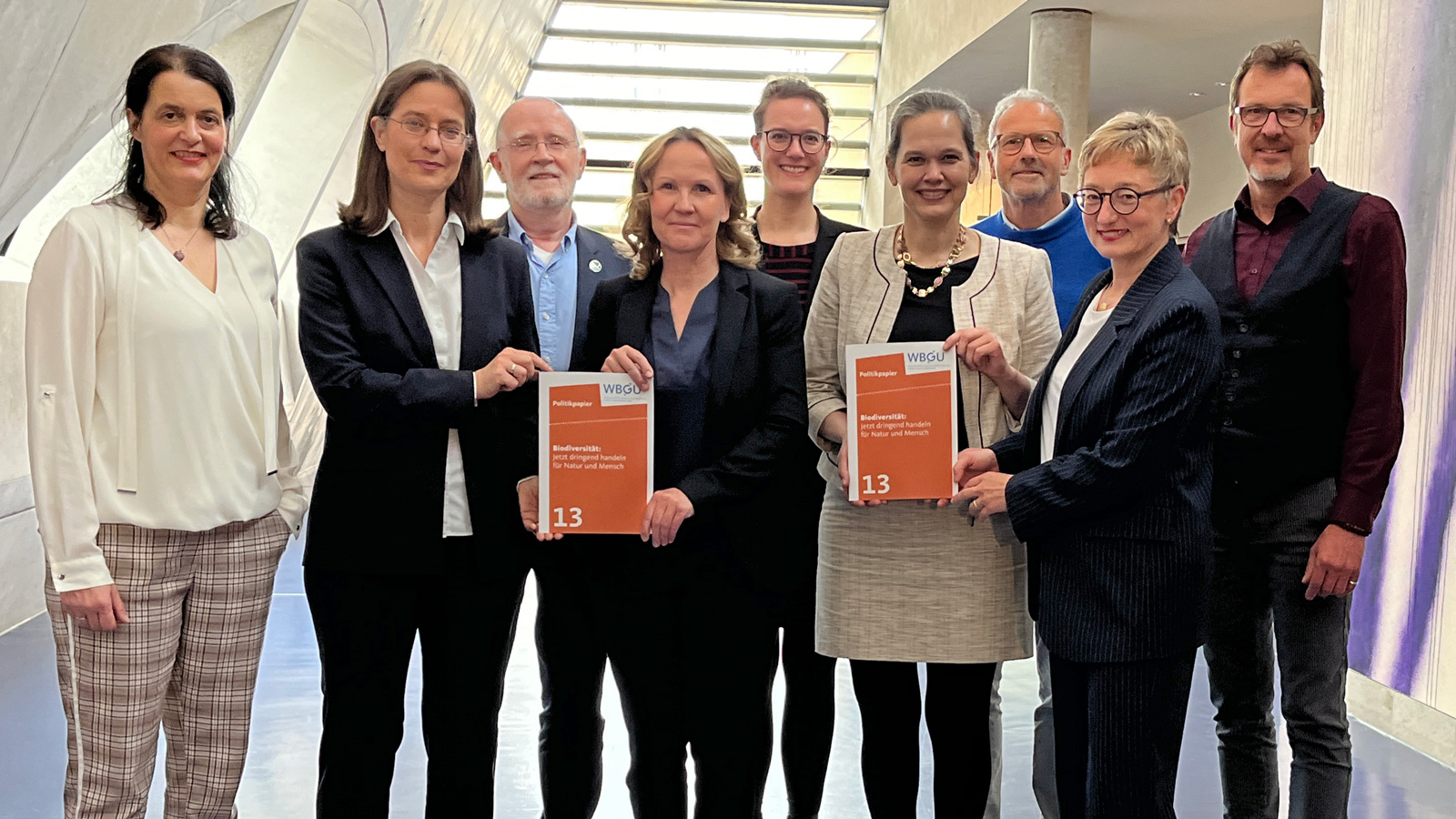Biodiversity: Act Now for Nature and Humanity
Only if healthy ecosystems provide services essential for survival sustainably in a sustainable manner can also humans live healthy lives. This requires the successful protection of the climate and biodiversity. In the case of biodiversity, the Kunming-Montreal Global Biodiversity Framework (GBF), together with the new UN Biodiversity of Areas Beyond National Jurisdiction Treaty, offers a unique window of opportunity. These are the key messages of the policy paper 'Biodiversity: Act Now for Nature and Humanity', which the WBGU today presented to Steffi Lemke, Germany’s Federal Environment Minister, and Mrs von Messling, Head of Department at the Federal Ministry of Education and Research. The WBGU recommends the guiding concept of a multifunctional mosaic for land and ocean use: i.e. integrating our thinking on protection and use in such a way that multiple benefits are created for nature and humanity. Germany should take decisive international action and launch processes to implement the two agreements, set up dialogue forums and pioneering coalitions, and launch an education and communication offensive for biological diversity. Biodiversity promotion should not be financed with tax revenues alone but also involve the private sector, for example by reallocating environmentally harmful subsidies and by ensuring clear reporting and taxonomy. The costs of inaction should be understood.
Implement area-based targets
Important area-related biodiversity targets have been agreed internationally. "We recommend protecting at least 30% of terrestrial and marine areas with protected-area systems. In addition to zones with strict biodiversity conservation, protected-area systems can also include zones that promote biodiversity while simultaneously permitting graduated forms of use. The zones should be interconnected and have a positive effect on the planning and use of the remaining 70% of terrestrial and marine areas which are not part of the protected-area systems," emphasized Hans-Otto Pörtner. The implementation of such a multifunctional mosaic of land and ocean uses should be enabled and promoted by means of integrated terrestrial and marine spatial planning. "Civil-society, private and public stakeholders, as well as Indigenous and local communities should be involved in the selection and implementation of measures for conservation and use," added Markus Fischer.
Assume international responsibility
Germany should visibly assume responsibility for dealing with biodiversity. "In particular, the content of the Kunming-Montreal Global Framework Agreement (GBF) and the Biodiversity of Areas Beyond National Jurisdiction Treaty (BBNJ) should be fleshing out and their implementation coordinated,“ said Sabine Schlacke. Germany should stand resolutely behind the GBF's land-use targets, work with other countries to swiftly submit proposals for area-based conservation measures, and push for coherence and coordination between different environmental treaties. Furthermore, Germany should initiate a 'coalition of the willing' and promote the concept of multilateral cooperation alliances.
Finance biodiversity promotion
Biodiversity promotion needs sufficient funding. Not exclusively taxpayers' money should be used for this purpose; rather, new sources of funding should also be tapped and the framework conditions for economic activities adapted in such a way that business and companies are made co-responsible for funding in accordance with the polluter-pays principle. Germany should work to ensure that the funding contributions agreed in the context of the GBF are made as quickly as possible, not just gradually increasing, and total well over US$200 billion per year. Reducing subsidies would lead to considerable savings, which could free up financial resources for biodiversity-friendly measures.
The Kunming-Montreal Global Biodiversity Framework and the Biodiversity of Areas Beyond National Jurisdiction Treaty
In 2022, the international community agreed on a new Global Biodiversity Framework (GBF) and in 2023 on the Biodiversity of Areas Beyond National Jurisdiction Treaty (BBNJ). This political consensus reflects the scientifically proven urgency of biodiversity conservation and demonstrates the willingness to cooperate on this topic even in years of strained international relations.

